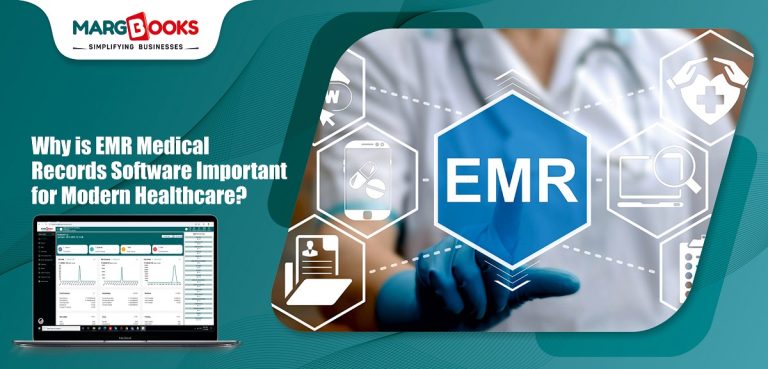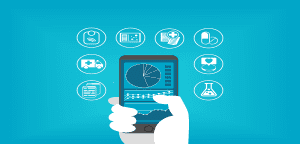In today’s fast-paced healthcare environment, where accuracy, efficiency, and timely information are crucial, the integration of technology has become essential for delivering high-quality care. Among the innovations that have transformed the healthcare industry, EMR medical records software stands out as one of the most pivotal tools. This software enables healthcare professionals to manage patient records digitally, which simplifies numerous tasks that were traditionally manual and paper-based. Why is EMR medical records software so important? Let’s explore how it has revolutionized the healthcare sector, focusing on its significant benefits for both providers and patients.
What is EMR Medical Records Software?
EMR (Electronic Medical Record) software is a digital system used by healthcare providers to store, manage, and retrieve patient information. Unlike traditional paper-based records, EMRs allow healthcare professionals to document patient data in real time, improving the accuracy, accessibility, and security of the information. This software can include a range of features, from managing patient history to prescribing medications and scheduling appointments.
Key Benefits of EMR Medical Records Software
- Improved Patient Care One of the primary reasons why EMR medical records software is crucial is that it directly impacts the quality of patient care. With quick access to accurate and up-to-date medical histories, healthcare providers can make informed decisions faster. This reduces the chances of medical errors and ensures that patients receive appropriate treatment promptly.
- Increased Efficiency and Productivity Traditional paper records often require time-consuming searches and manual input. EMR medical records software streamlines these processes, allowing healthcare professionals to access and update patient records with just a few clicks. This increases productivity and allows more time to focus on patient care rather than paperwork.
- Secure Data Management Security is a top concern when it comes to patient data. EMR software offers robust security features, such as encryption and password protection, ensuring that sensitive information remains protected from unauthorized access. This is vital in maintaining patient trust and complying with regulations like HIPAA (Health Insurance Portability and Accountability Act).
- Better Collaboration Among Healthcare Providers EMR systems allow healthcare providers to share patient data securely with specialists, pharmacies, and other medical professionals. This collaborative approach ensures a more holistic view of the patient’s health, which is critical for effective treatment. The integration of pharmacy billing software and healthcare store software further improves this collaboration by enabling seamless communication between different healthcare sectors.
- Cost Efficiency While the initial investment in EMR software may seem high, the long-term savings are significant. EMR software reduces the costs associated with paper records, such as printing, storage, and transportation. Moreover, fewer medical errors and more streamlined administrative processes can help healthcare facilities save money.
- Regulatory Compliance Healthcare regulations are continuously evolving. EMR medical records software helps healthcare providers stay compliant with local and international standards. It also simplifies the process of submitting reports for audits and inspections, ensuring that healthcare providers are always on top of their legal obligations.
The Role of EMR Software in Improving Other Healthcare Systems
Integration with Pharmacy Billing Software
EMR medical records software doesn’t work in isolation. It can integrate seamlessly with other systems, such as pharmacy billing software. Pharmacy billing software helps manage the financial aspect of prescriptions, track medication dispensation, and ensure that billing is accurate. By linking pharmacy billing software with EMR systems, healthcare providers can easily verify prescriptions, track medication usage, and ensure the correct medications are prescribed to patients. This reduces the chances of errors, such as medication mismatches or incorrect dosages, ensuring better outcomes for patients.
Integration with Healthcare Store Software
In addition to pharmacy billing software, EMR medical records software can also integrate with healthcare store software. This software is used to manage the inventory of medical supplies, equipment, and other healthcare products. By connecting EMR software with healthcare store software, medical staff can ensure that the necessary supplies are available for patient care without overstocking or running out of essential products. The integration of these systems creates a more streamlined healthcare environment, improving patient care and operational efficiency.
The Impact of EMR on Patient Experience
Better Communication and Engagement
With the use of EMR systems, patients can benefit from better communication with their healthcare providers. Through patient portals, they can access their medical records, schedule appointments, and request prescriptions. This level of transparency and accessibility helps patients feel more involved in their healthcare journey, improving patient satisfaction and engagement.
Reduced Waiting Times
EMR systems help reduce the time spent on administrative tasks. With automated scheduling, appointment reminders, and efficient data management, patients experience shorter waiting times. This not only improves patient satisfaction but also boosts the efficiency of the healthcare system.
Why Choose Margbooks for EMR Medical Records Software?
When selecting EMR medical records software, it is essential to choose a reliable provider that can offer a solution tailored to the specific needs of your healthcare facility. Margbooks is a trusted name in the healthcare software industry, offering comprehensive EMR systems that cater to a wide range of healthcare providers. Margbooks’ EMR software is user-friendly, secure, and highly customizable, ensuring that it fits seamlessly into your practice, whether you are a small clinic or a large hospital.
Features of Margbooks EMR Software
- Customizable Dashboards: Margbooks offers customizable dashboards that provide a comprehensive view of patient data, treatment plans, and progress.
- Cloud-Based Access: The software is cloud-based, enabling access to patient records from any location at any time.
- Integrated Billing Systems: The system integrates with pharmacy billing software and healthcare store software, making the entire billing process smooth and hassle-free.
- Compliance and Security: Margbooks ensures that the software is compliant with all healthcare regulations and offers robust security features to protect patient data.
Conclusion
The importance of EMR medical records software in modern healthcare cannot be overstated. It plays a crucial role in improving patient care, increasing operational efficiency, ensuring regulatory compliance, and enabling better collaboration between healthcare professionals. The integration of pharmacy billing software and healthcare store software further enhances the overall healthcare ecosystem, contributing to more accurate billing and efficient management of resources.
For healthcare providers looking to streamline their operations, improve patient outcomes, and reduce costs, adopting EMR software is no longer an option but a necessity. With Margbooks, healthcare facilities can ensure they have the best tools at their disposal for delivering exceptional care and achieving greater operational efficiency.




